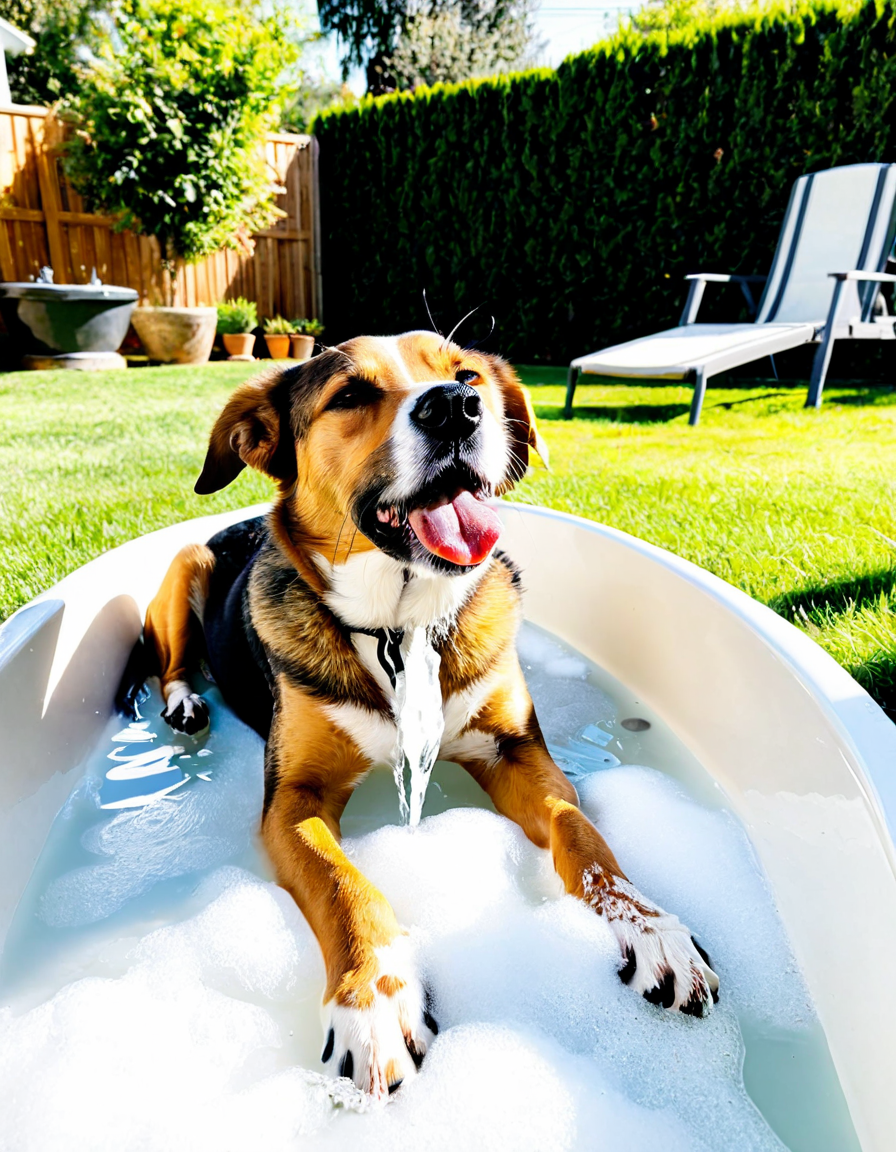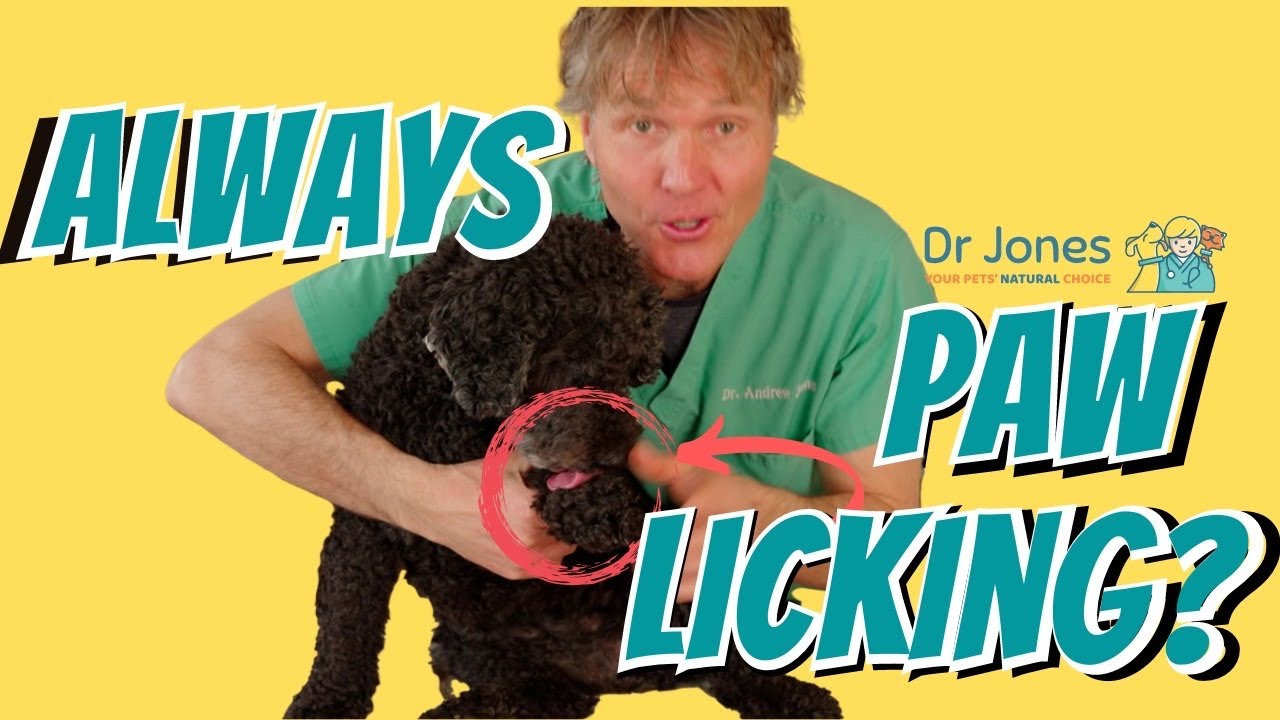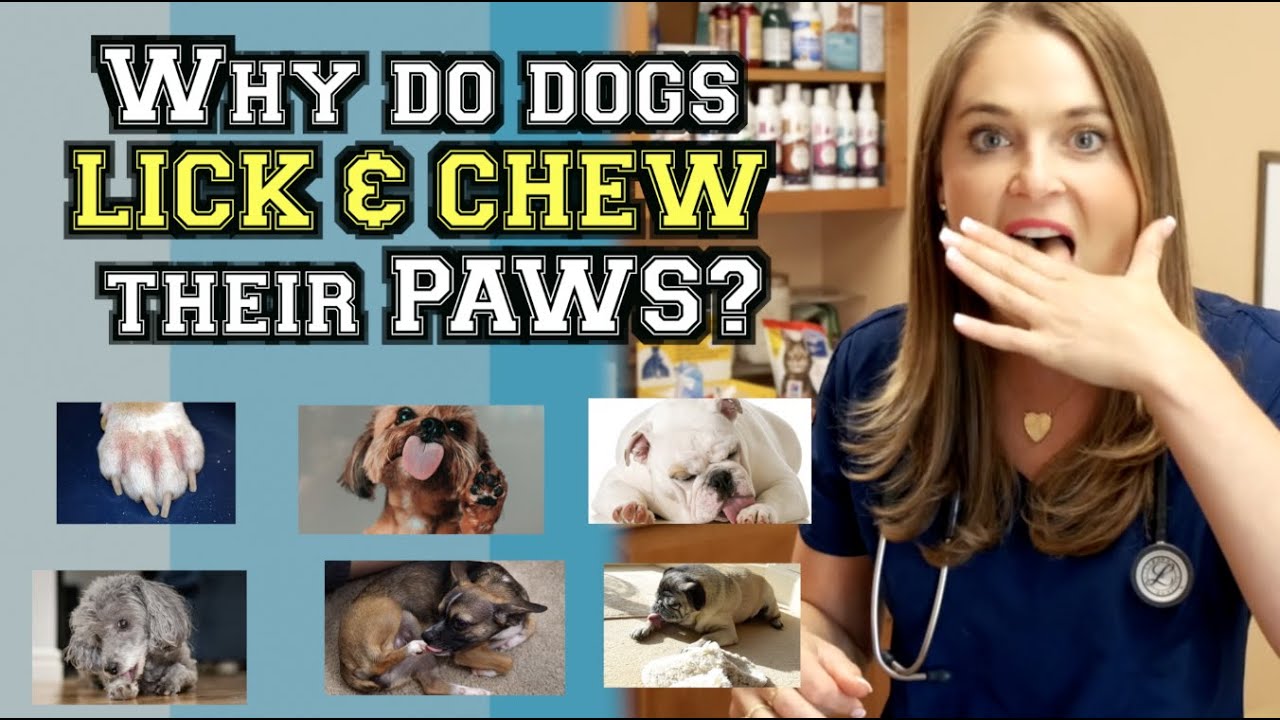If you’ve ever caught your dog licking her paws incessantly, you might find yourself wondering, “Why does my dog keep licking her paws?” This behavior isn’t uncommon, as many dog owners face similar situations. Understanding the reasons behind this repetitive behavior can help you take action to address your pet’s needs effectively. Let’s dive into the various causes of paw licking and how you can manage this behavior for a healthier, happier pup.
Top 7 Reasons Why Dogs Lick Their Paws
1. Allergies – Environmental and Food-Related
Allergies frequently top the list of reasons dogs lick their paws. Similar to humans, dogs can react adversely to environmental allergens like pollen, dust mites, or mold. For instance, Golden Retrievers often lick their paws after frolicking in grass due to seasonal allergies. A dog with such sensitivities might benefit from an allergy test and dietary adjustments to pinpoint the source of discomfort.
2. Boredom and Anxiety
Just like some humans chew their nails when anxious, dogs may lick their paws to cope with stress or boredom. Take the case of Luna, a 4-year-old Beagle. Her owner noticed that daily mental stimulation activities and interactive toys significantly reduced her paw licking. Engaging your dog with challenging puzzles or extended play sessions can help alleviate anxiety-driven behaviors.
3. Injuries or Irritation
Sometimes, your dog’s paw licking might stem from an injury. Cuts, scrapes, or even irritating objects lodged between paw pads can prompt this behavior. For example, after a day wandering on rough terrain, Max, a Labrador, was found to have a thorn stuck in his paw, explaining his persistent licking. Always check your dog’s paws after walks to catch any hidden injuries before they escalate.
4. Fungal or Bacterial Infections
Paw licking may also signal an underlying fungal or bacterial infection. Conditions like yeast infections, often seen between toes, can make the area itchy and uncomfortable. A poignant case involved Daisy, a Dachshund whose constant paw licking led to a vet diagnosis of a bacterial infection. A regimen of medicated shampoo and antibiotics cleared her infection and reduced her discomfort.
5. Dry Skin and Dermatitis
Just as humans can experience dry skin, dogs are prone to it as well. Skin conditions, such as seborrhea, can cause persistent itching and licking. Regularly using moisturizing creams like Vet’s Best Moisture Mist can not only address irritation but also restore the skin to a healthier state. Keeping an eye on your dog’s skin is crucial for preventing these issues.
6. Behavioral Reinforcement
Dogs are creatures of habit, and sometimes licking their paws can turn into a self-reinforcing cycle. The temporary relief or comfort gained from licking may encourage the behavior to continue. To interrupt this cycle, consider applying some positive reinforcement strategies inspired by trainers like Zak George. Redirecting your dog with training commands or engaging activities can help shift the focus away from licking.
7. Medical Conditions
Lastly, certain medical conditions can lead to increased licking behavior. Diseases like Cushing’s or hypothyroidism often manifest as excessive grooming habits. It’s essential to stay proactive with vet visits to detect potential health issues early. Regular check-ups can make a world of difference in identifying and treating underlying causes of paw licking.
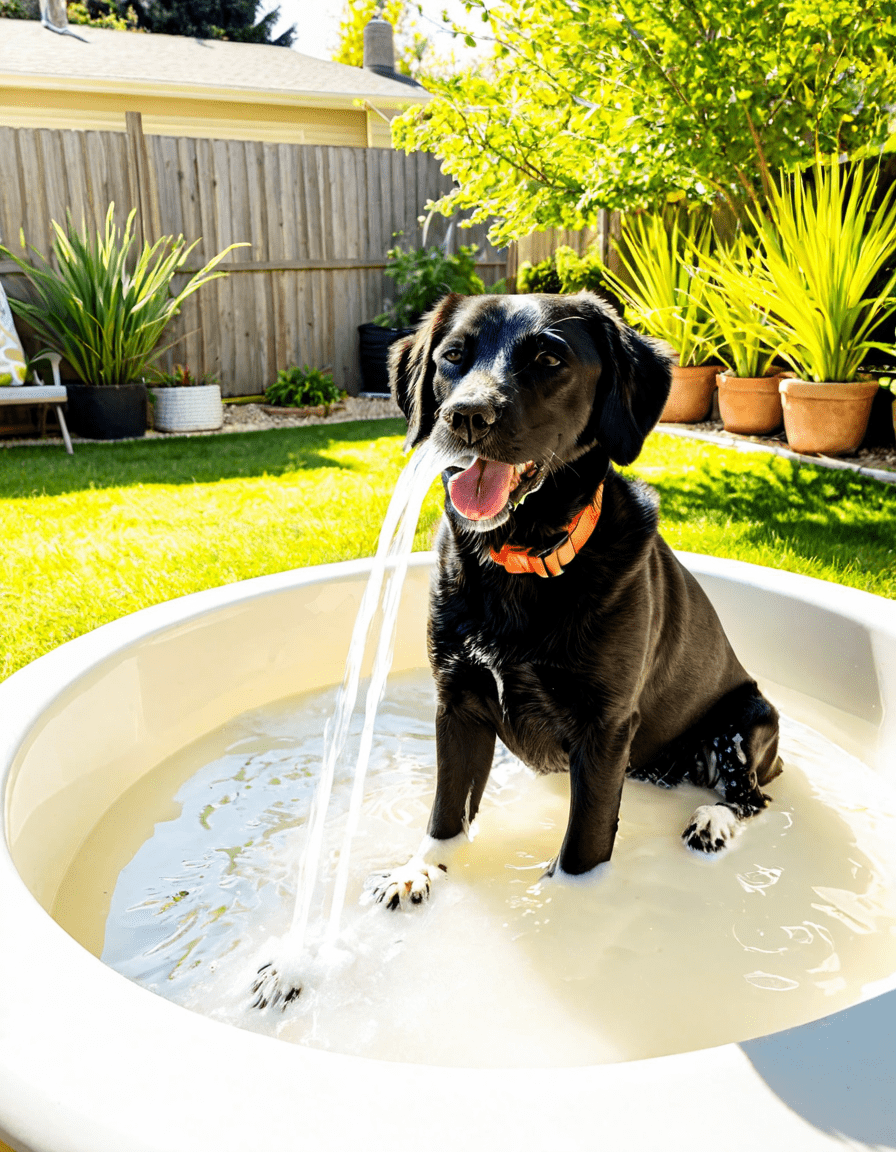
Why Does My Dog Chew Her Paws? An In-Depth Look
When it comes to understanding why your dog may be chewing her paws, the motivations can overlap with why she licks them, but chewing signals a more aggressive need for relief or indicates a deeper issue. If you notice your dog chewing her paws more than licking, it might point to:
A noteworthy example is Bella, a Border Collie who started chewing her paws due to anxiety. After consulting with animal behaviorists like Dr. Sophia Yin, Bella’s owner learned effective techniques to curb her compulsive behavior. It’s vital to observe your dog’s habits and seek professional advice if you suspect a behavior escalation.
Why Is My Dog Biting His Paws? Understanding the Nuances
The act of biting differs from licking and chewing, often indicating a heightened state of frustration or irritation. If your dog is biting his paws, consider the following causes:
Documenting these behaviors to discuss with your veterinarian can lead to better outcomes. For instance, Charlie, a Cocker Spaniel, was diagnosed with food allergies after his owner noted his excessive biting. A directed diet change helped alleviate his symptoms.
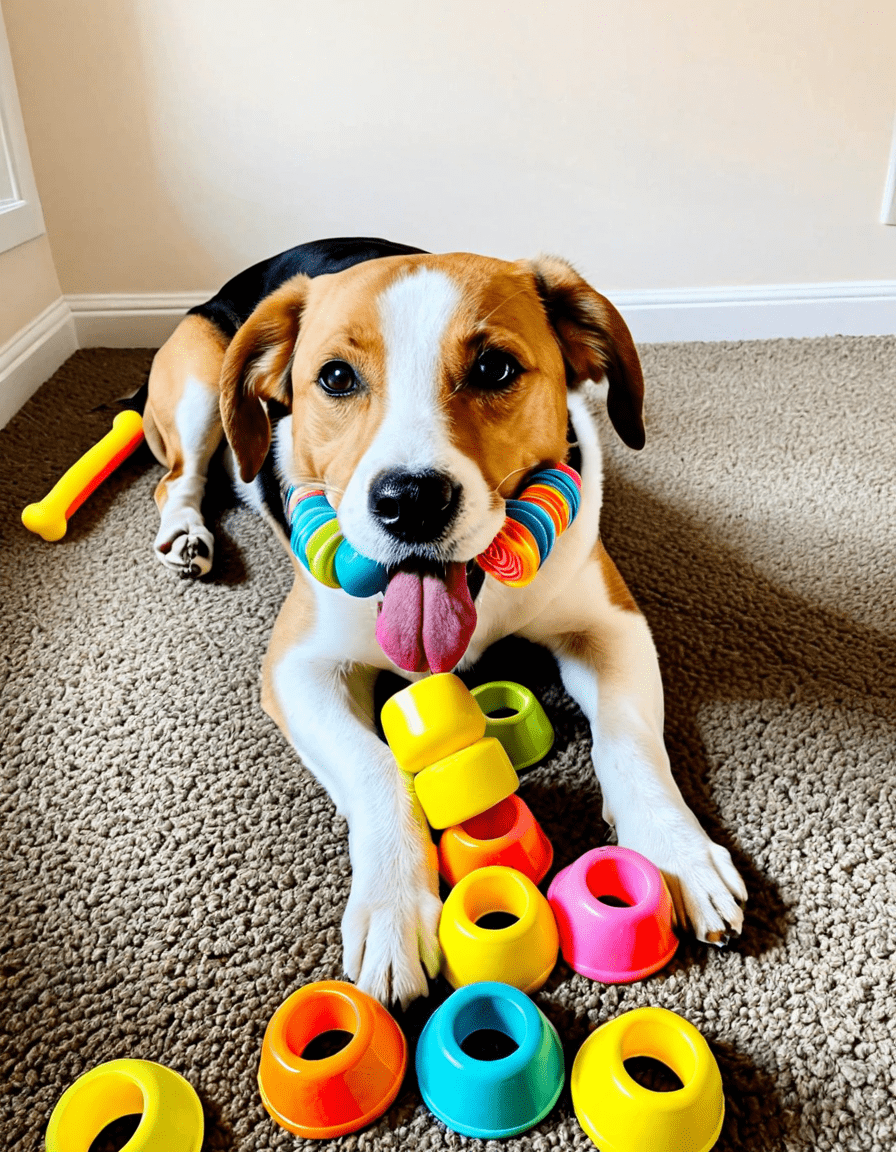
Strategies for Managing Paw Licking Behavior
By understanding the why does my dog keep licking her paws and applying management techniques, you can substantially improve your dog’s quality of life while preventing health complications. Taking these proactive steps will not only keep your dog happier but will also strengthen the bond you share.
As a dedicated pet owner, tracking your dog’s behaviors, noting patterns, and seeking veterinary advice when needed, is crucial. With vigilance and a little know-how, you can tackle this common canine concern head-on. If your dog starts licking more often, don’t just shrug it off; investigate further!
Why Does My Dog Keep Licking Her Paws?
If you’ve ever caught your dog licking her paws, you might wonder what’s behind this behavior. Dogs often lick their paws to groom themselves, but did you know it might also signify something more? Sometimes, it’s driven by allergies, boredom, or even simple curiosity! Just like humans can experience skin irritations, our pups can, too. So, understanding why does my dog keep licking her paws is crucial for comfortable canine care.
Did You Know?
Here’s something that’ll catch your attention—dogs groom themselves similarly to cats. It’s a natural part of being a pet! But according to studies, an excessive amount of licking could indicate underlying issues like allergies or even parasites. If you’re wondering about other habits, you might find it interesting to read about why dogs bite their paws too.
Now, here’s a fun tidbit: dogs rely heavily on their sense of smell. With over 300 million scent receptors in their noses, they’re more curious about the smells around them than we are! It’s not uncommon for dogs to lick their paws to explore scents, just like how Li Jun Li explores her diverse acting roles. By the way, did you know that dogs can eat potato peels, but they should be prepared carefully? Sometimes, their curious munching might lead to unwanted reactions!
The Bottom Line
Keep in mind that the reason you see your pup licking her paws could change day by day. Maybe she stepped in something irritating, or perhaps she’s searching for some comfort. Regardless, if you notice your dog licking excessively and combining it with other symptoms, such as a runny nose—like humans, dogs can get sniffles too—professional guidance is a smart move. So, don’t hesitate to seek advice if you’re puzzled!
In essence, understanding why does my dog keep licking her paws goes beyond mere observation. Each situation can have unique factors at play, making it vital for dog owners to look for signs. Just like how Erskine College tailors their education to students’ needs, knowing your pup’s specific patterns helps create a happier home. So next time you notice that licking, you’ll have a little more insight to guide your response!
